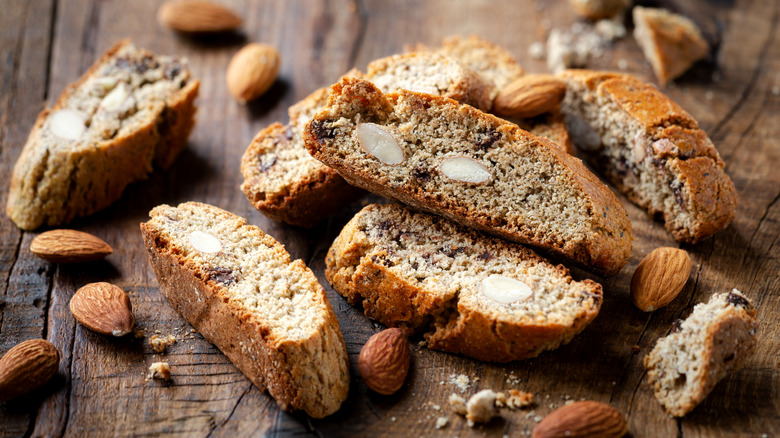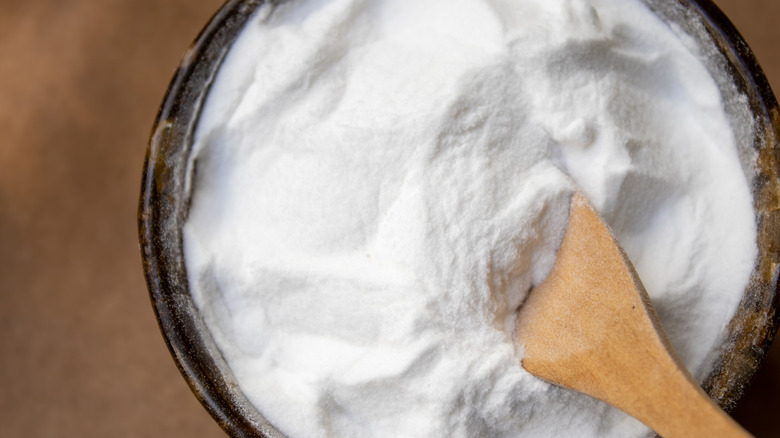The Baking Soda Ingredient Swap For Crunchier Biscotti
It is often said that cooking is an art and baking is a science. The need for precision in baking can make it difficult to substitute ingredients since it means that running short on a necessary component in a recipe can make or break it entirely. With an adequate understanding of the chemistry behind baking, however, swapping one ingredient for another might be worth the risk — in fact, it might even improve your outcome. Such is the case for using baker's ammonia in your next biscotti recipe.
Baker's ammonia, also known as ammonium bicarbonate, is a powdered compound used to leaven baked goods in the same fashion as baking soda or baking powder. When its crystals break down during baking, they leave behind air pockets that are responsible for dough or batter rising. While baking soda and powder are much more popular ingredients in today's recipes, baker's ammonia has an advantage in baked goods like biscotti where you want to achieve a crispy, crunchy texture, since the air bubbles left behind by this ingredient are smaller than those left by the former options.
How to substitute with baker's ammonia
Since ammonium bicarbonate is not a dominant leavening agent on the market, it can be difficult to find in local grocery stores. Given this fact, we recommend ordering it online from one of the many websites that sell it, including familiar vendors like Amazon and King Arthur Baking Company. When using baker's ammonia as a substitute for baking soda in biscotti, you can do so in a one-to-one ratio.
While baker's ammonia may seem like a silver bullet ingredient, there is one important factor to consider when planning on using it: its smell. Like other ammonia products, this ingredient can be extremely pungent in a way that many find unpleasant. This is nothing to worry about when baking biscotti or other dry, crunchy baked goods, as the lack of moisture in the food allows for the smell to cook off entirely; however, in foods that retain more moisture, such as breads and cakes, we advise against using baker's ammonia to avoid any lingering scent.

